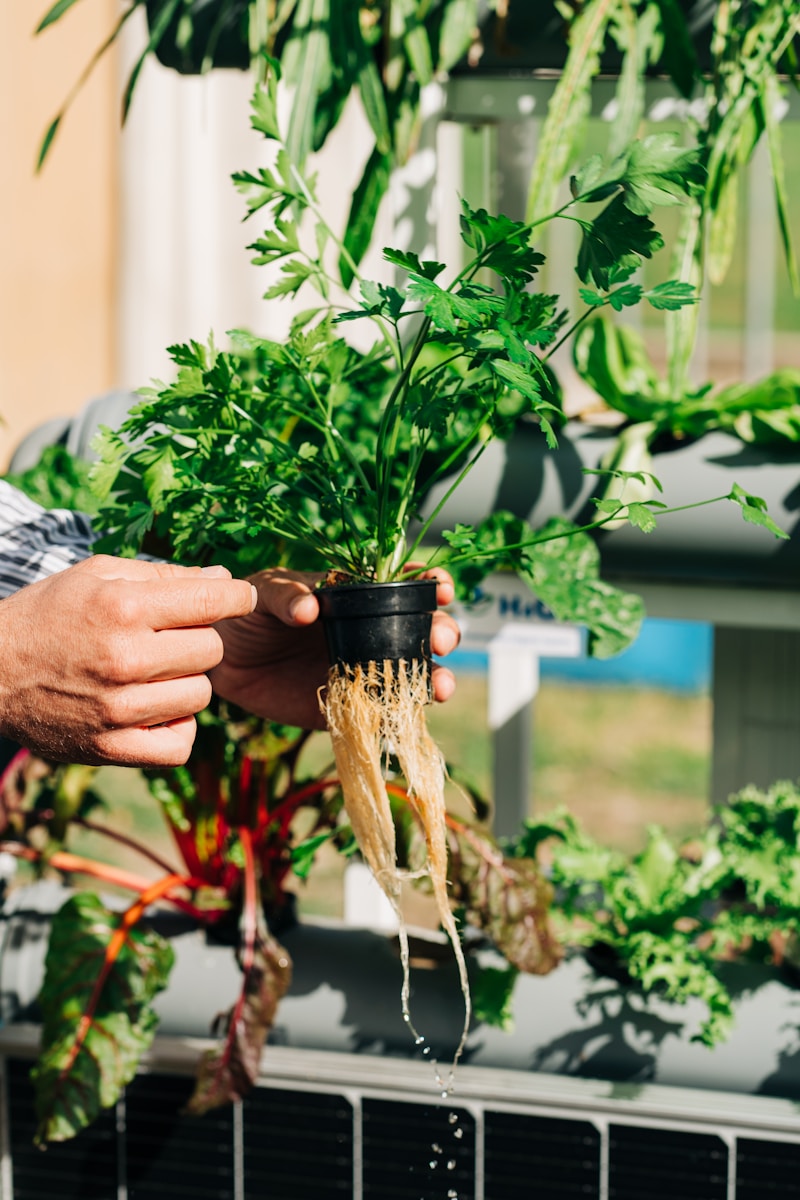As lovers of nature, we often find inventive ways to engage with the natural world around us. While traditional soil gardening continues to be a popular pastime, hydroponics—a method of growing plants in water without soil—is quickly becoming a favorite among many. Hydroponics allows plants to grow faster and produce more yield compared to soil gardening. However, one of the crucial factors that ensure the optimal health and growth of hydroponically grown plants is the maintenance of appropriate pH levels in the water.
However, a common challenge faced by hydroponic gardeners is the difficulty in maintaining stable pH levels. A question that often comes up is, why does the pH corrector not last long in hydroponics, especially those natural correctors like citric acid or lemon juice?
Typically, natural correctors like citric acid or lemon juice are applied to pH-adjust hydroponic solutions. However, these natural correctors, although effective in the short term, are quickly absorbed, causing the pH to rise within a short time. A blog post on Jencoi discusses how these weak acids provide temporary solutions and often require frequent applications to maintain optimal pH levels. It’s worth noting that unstable pH levels can hinder plants from absorbing nutrients effectively, regardless of the otherwise excellent growing conditions. Thus, maintaining optimal pH levels is pivotal for successful hydroponic gardening.
So, how can one effectively manage pH levels in hydroponics for longer durations? A prefered option by many hydroponic gardeners is the use of phosphoric acid.
Phosphoric acid serves as an efficient pH corrector in hydroponics systems. In a forum thread on Bonsai Nut, several users are exploring phosphoric acid as a reliable pH corrector compared to branded pH correctors. Notably, it’s cost-effective and shows longer-lasting results. Not to mention, phosphoric acid can provide essential nutrients to the plants, adding to its benefits as a pH corrector. Apart from this, professional-grade products like GH’s pHDown also use phosphoric acid, further validating its efficiency. Keeping this in mind, it is evident that phosphoric acid can offer a more reliable pH management solution in hydroponics than common natural correctors.
But, what affects the longevity of pH correctors in hydroponics? There are several factors at play, such as the plant’s nutrient intake, temperature, and the amount and strength of the pH corrector used. Naturally, as plants absorb nutrients, they tend to elevate the pH levels of the solution. Thus, long-lasting pH correctors become crucial for maintaining the recommended pH levels.
According to an article on Pure Hydroponics, using concentrated acids is advised for pH correction in hydroponics. However, all acids should be diluted to between 5 and 10% strength before being added to a hydroponic mixing tank. Using too much acid and causing the pH to drop quickly can harm the plants. Phosphoric acid is recommended due to its longevity and plant-feeding properties. Yet, it should be used with care and precision to achieve the best results.
Here are the key takeaways from this discussion:
- Natural pH correctors like citric acid and lemon juice are quickly absorbed and hence, don’t last long in hydroponics.
- Phosphoric acid is a reliable and cost-effective pH corrector that provides longer-lasting results.
- Concentrated acids should be diluted before use, and phosphoric acid is recommended due to its longevity and plant-feeding properties.
- Consistent monitoring and adjustment of pH levels are critical for effective hydroponic gardening.
In conclusion, the successful maintenance of pH levels in hydroponics is a crucial aspect of successful hydroponic gardening. While many turn to natural correctors like citric acid and lemon juice, they are quickly absorbed, leading to frequent pH fluctuations. However, phosphoric acid, as a pH corrector, has shown to be a reliable and longer-lasting alternative. It provides essential nutrients to the plants and ensures the optimal pH level for their growth. Therefore, if you’re having trouble maintaining the pH level in your hydroponic system, a change in your pH corrector might just be the answer you’re looking for.

